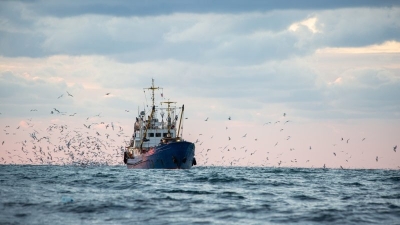EU justice chief Reynders defends EU supply chain law against German liberals’ rebuke

EU Justice Commissioner Didier Reynders joined German Social Democrat ministers Hubertus Heil and Svenja Schulze to defend the EU supply chain legislation against ongoing criticism from Germany’s Free Democratic Party (FDP).
In a closed-door session of an industry conference accessed by Euractiv, EU Justice Commissioner Didier Reynders addressed continuing opposition to the Corporate Sustainability Due Diligence Directive (CSDDD) on Thursday (11 April) – highlighting that the law “will not introduce any new reporting obligations.”
While the CSDDD was endorsed by ambassadors of EU countries on 15 March and will be voted on in the European Parliament on 24 April – it bumped into several last-stage roadblocks that saw Germany and numerous other member states abstain from voting.
Speaking at the same event, German Minister for Labour and Social Affairs Hubertus Heil pointed out that the law has become a “symbol” for the anti-bureaucracy discourse and that, within certain segments of the business community, “the feeling of many is against it.”
Despite the Social Democrat’s support for the new EU rules, coalition partners from the liberal FDP had forcefully rebuffed the law.
They argued it would add a substantial bureaucratic burden for companies at a time when they aim to reduce red tape.
After the German abstention became public, many member states raised concerns against the draft law, despite having agreed on it with co-legislators from the European Parliament.
This led to last-minute changes including cutting the number of in-scope companies by 70% compared to the original European Commission’s proposal.
At Thursday’s event – organised by the Responsible Business Alliance, an association that includes German industrial giants such as carmaker BMW and automotive supplier Continental, who backed the introduction of an EU-wide law – Reynders doubled down on support for the new measure, which he said was designed to be risk-based and focusing only on large businesses.
“Very large companies have the capacity to implement due diligence measures,” the Commissioner said. “However, special attention was given to reducing any unnecessary administrative burden.”
The final law, he said, minimises any indirect impact on small and medium companies. “The legislation is more SME-friendly than any other existing due diligence legislation,” said Reynder, “and aims to prevent the shift of compliance burden on SMEs in the value chain.”
Heil urged FDP coalition partners and business leaders to set emotions aside and “not forget that we are making fact-based policy,” arguing that the final compromise “in many areas also corresponds to [the] German position of not overdoing it.”
The additional reassurances that had been added through the negotiation process “show that [the CSDDD] has become a good legislation,” said Heil, adding the law will help ensure that “decent companies [will] not be the ones to lose out in the competition.”
German Minister for Economic Cooperation and Development Schulze agreed: “Good working conditions along the supply chain are also economically worthwhile for companies,” she argued, “because they form the foundation for long-term partnerships and make supply chains more stable.”
Reynders similarly expected the law to help companies build more resilient supply chains “by incorporating sustainability into their business strategies” – citing studies that indicated that, during the COVID-19 crisis, companies with a strong sustainability business strategy performed better.
The Commissioner pointed out the new rules will complement current EU measures, assisting companies in setting up and carrying out due diligence – following a policy approach that Schulze said was “clearly focussing on a multi-stakeholder approach [and] alliances between business, civil society, trade unions, and governments.”
No retreat from risk countries
Heil also addressed the argument – previously advanced by German Federal Minister of Finance Christian Lindner, and head of the FDP – that the law could lead to the retreat of German or European companies from countries with higher risks of human rights breaches.
At an SME conference in March, Lindner had warned that “no more investments will be made in emerging and developing countries, no more economic opportunities will be opened up, but companies will withdraw from them because they fear reputational risks.”
Lindner’s arguments were echoed by business associations such as the German Chamber of Industry and Commerce (DIHK), which recently suggested that the law would lead to a narrower selection of suppliers – and this in turn would run against the broader EU aim of diversifying supply chains and securing raw materials needed for the green transition.
The law “is not about making international trade and economic relations more difficult, nor do we believe that it is a good thing for companies to withdraw,” Heil countered.
Instead, “we want to put an end to specific grievances, and thus show an example of how it can be done,” he said, adding that his ministry would help companies to implement the new requirements.
Fear of lawsuits or ‘scaremongering’?
Heil also disagreed with Lindner’s statements on heightened legal risks stemming from the new EU law.
The FDP leader had maintained that US “law firms are already preparing model lawsuits for NGOs, including against German companies, which will then be taken to court for their economic activities in emerging and developing countries.”
In January 2023, Germany enacted a national law on supply chain due diligence – contrary to the planned EU rule, does not include options for civil liability.
Lindner’s lawsuits’ warnings were also refuted by a source from an international benchmarking initiative close to the CSDDD negotiations, who called the German politician’s remarks “random scaremongering”.
“You are only liable for harms caused by not adhering to the due diligence obligations in the directive,” the source said, thus “there is no room for frivolous lawsuits”.
The source argued that divesting from operations in a particular geography would only happen if a company wasn’t willing to adhere to environmental, labour, and human rights standards.
Moreover, “cases can only be taken when there has been time to assess whether companies have carried out appropriate due diligence,” the source said. “It is unrealistic to think that there will be any cases until 2030 – when all companies will have been phased in and have at least one year to adhere to the law.”
Read more with Euractiv



